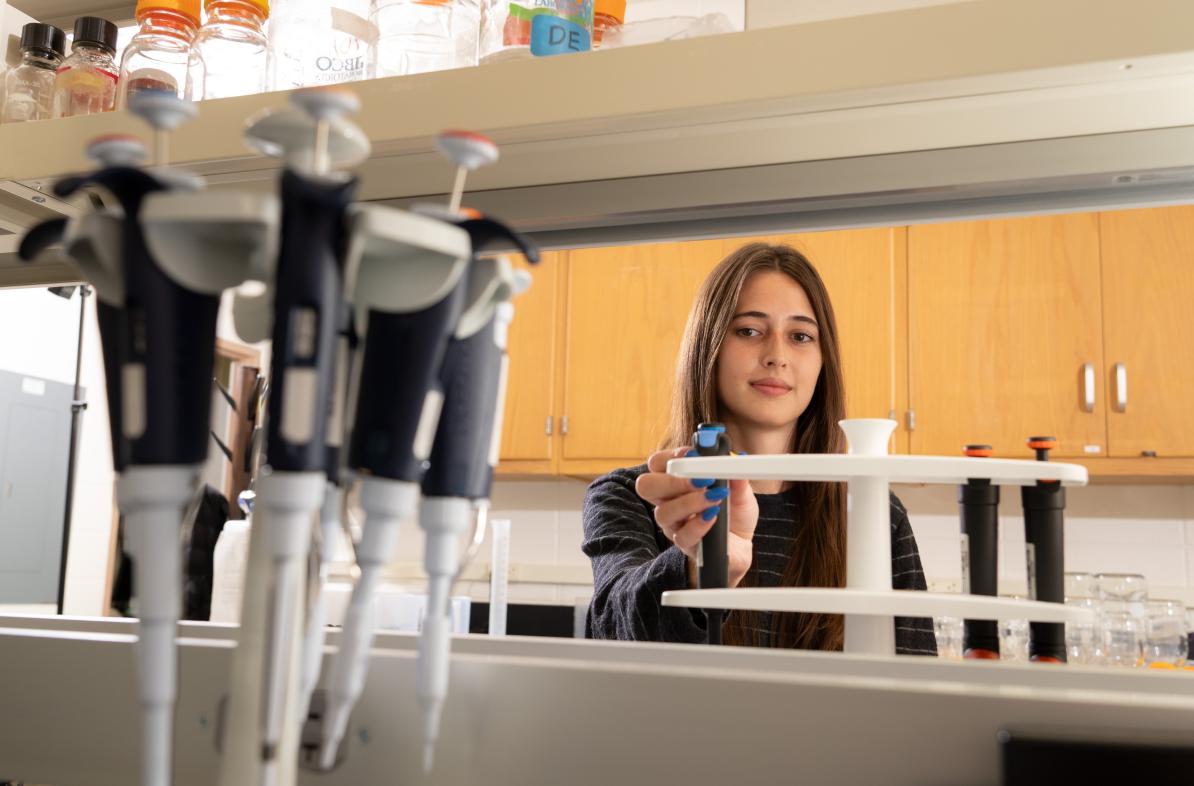The goal of the ReNS program is to support student involvement in research-related careers and also provide opportunities in neuroscience research for students from backgrounds underrepresented in STEM fields. The program is funded by a National Institute of Neurological Disorders and Stroke (NINDS) R25 grant and is directed by Dr. Brad Carter, assistant professor of biology, and Dr. Isobel Scarisbrick, professor of physical medicine and rehabilitation and program director of the regenerative sciences Ph.D. track at Mayo Clinic.
The ReNS program will support six UWEC students a year to work full time for 10 weeks doing research with a faculty mentor in a Mayo Clinic lab. Students also will participate in professional development curricula through the SURF program. Summer research opportunities like the ReNS program can be life changing for students, Carter says.
“These opportunities give students additional experience and perspective that’s complementary to the education they are receiving here at UW-Eau Claire and can help them form their future planning,” Carter says. “They have much more perspective on science as a profession and their own interests after having been in a different environment with additional expertise and mentorship beyond their strong foundation from here.”
UW-Eau Claire and Mayo Clinic Health System have had a formal master research agreement since 2017 and research is at the center of the ReNS program to raise awareness among students about career opportunities in neuroscience and regenerative sciences.
Students will participate in a spring-semester seminar course with Carter to prepare them for their summer research opportunities, where they will be matched with faculty mentors at Mayo Clinic in Rochester. The students will present their research at local and national conferences in the fall semester following their summer research.
The seminar course at UW-Eau Claire will allow students to explore their identities as scientists and gain confidence through their preparations for summer research. Students who are motivated with a strong work ethic can be successful in their summer research, Carter says.
“Lab science is an iterative process,” Carter says. “It’s about being able to try things, making adjustments and doing it again, and that takes time. The more weeks you have that you are iterating instead of training, the more opportunities you have to make progress in the research sense. My hope is that these pre-summer preparations help students maximize their research experience and scientific progress over the course of the summer.”
Katelynn Krey, a second-year student from Hastings, Minnesota, majoring in biomedical engineering, is excited to work with some of the best scientists in their fields at Mayo Clinic in Rochester.
“I wanted to participate in the ReNS program to explore what research as a career can be and fully immerse myself into a research project,” Krey says. “This program will allow me to advance my technical skills, explore research as a career and create a network of lasting relationships that will help me into my future.”
Emily Sanborn, a second-year student from Cedar Rapids, Iowa, majoring in neuroscience, is interested in exploring research as a career and is excited to further develop her research skills in Rochester.
“The ReNS program is a very exciting opportunity to have the privilege to contribute to some of the groundbreaking research happening at Mayo Clinic,” says Sanborn, who has worked in Carter’s research lab at UW-Eau Claire.
Mentoring is a core tenet of the program as each student will have multiple mentors — a faculty mentor at Mayo Clinic, co-primary investigators Carter and Scarisbrick and graduate student mentors in Rochester.
“I’m excited for these students,” Carter says. “I’m excited to see what their experience is. The NIH is interested in workforce development, having trainees being involved in science long term, and I think most of these students will. I’m hopeful for this cohort, and subsequent cohorts, that this experience will help them discern how they want to apply their talents and interests in their professional lives.”




